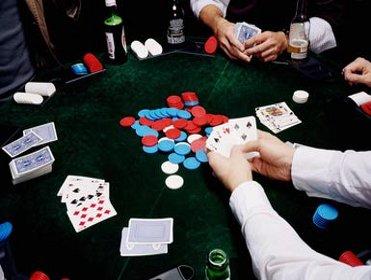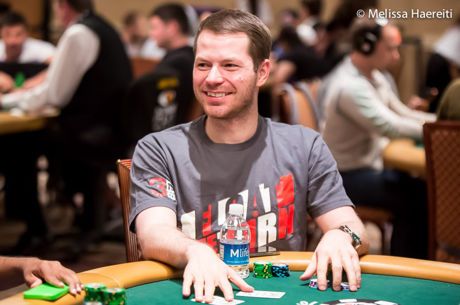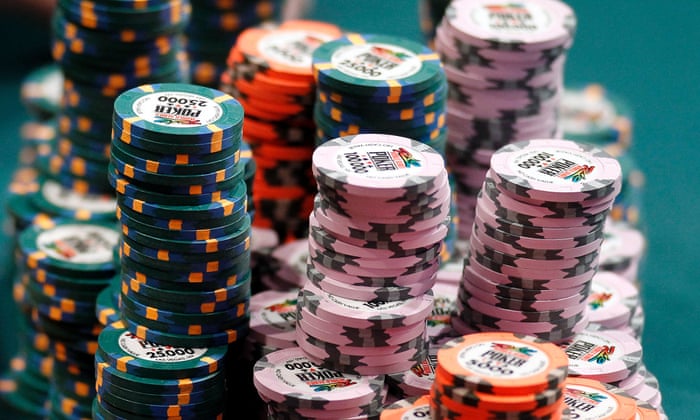Cash Vs Tournament Poker Strategy
This is a discussion on Tournament vs Cash within the online poker forums, in the General Poker section; I'm having a hard time feeling like I'm playing poker when I play tournaments vs when I. Poker tournaments are easier for a beginner to learn but they also require a large time commitment and your winnings will be very inconsistent. Cash games on the other hand offer much less demands on your time and your winnings will be a lot more consistent. The choice between tournaments and cash games is ultimately up to you. But live players know that the chips are different for online poker tournaments compared to cash games. The chips at the cash table are also known as checks; they can be exchanged for the cash value printed on the face. The poker chips at a tournament do not have a denomination printed on them. This is more than just a subtle difference.

We all love Omaha but, as with any poker variant, there are drastic differences between Omaha tournament play and cash games. We will look to introduce you to some of the differences between the two which, might look minor on the face of things, but can have a very dramatic impact on game-play, attitude and strategy.
For instance, cash game poker typically refers to games in which players can purchase chips at any or all times. Sure, there is a set buy-in but, as long as you meet the minimum amount, your place at the table is assured. Obviously, this means that some players at the table will have more fire power than others. After all, people will buy-in with differing amounts. In contrast, in tournaments, players buy-in for the same amount, beginning with the same amount of tournament chips.
Omaha cash games are played on one table while tournaments take place on multiple tables, hence the abbreviation MTT, which literally stands for multi table tournaments. In cash games, you can pick up your chips and “cash out” when you’ve had enough. Not so in tournament poker where elimination is your ‘only’ way out with play only ending when there is one person left standing.
Also, blinds stay the same for each hand in cash games, depending on the stakes at least, where-as in tourneys the blinds increase on a timed basis. Also, unless stated as a re-buy, most tourneys will freeze you out of the game should you bust but in cash games, you can buy yourself back in and continue playing. And that is the key distinction to the two games.
Tournament Omaha Poker
Because, in Pot Limit Omaha (PLO), you must use two pocket cards PLUS three community cards, it is absolutely critical that you select them accordingly in order to provide as many outs as possible. Position is another important factor in PLO. Check your aggression too, not only build your stack but use it. In short, be ruthless.
In fact, during a deep PLO tourney run, you will need to accumulate chips and build your stack as early as possible. This is because, sooner rather than later, you will be required to survive some close calls that could leave you hurting. Expect early limpers to be vulnerable so make them your ‘bounty’ but, as you move into the mid-stages and beyond, be aware that calls will get harder.
Look out and be ready to seize upon opponents overvaluing pairs, both higher and lower, both of which are almost unplayable and are a very common mistake in PLO. Reading hands in PLO may be tough, but there is some good news; Many players will inadvertently give away their hand strength.
Check-raising is a bad idea in Omaha poker. Players will often check while holding the nuts when in actual fact they would be far better off betting. Betting a lot of hands is a far better move and provides unpredictable cover so long as you be sure to mix it up. You need to stay on your guard in an Omaha tourney as it’s more complex and one wrong move could cost you the whole game, which isn’t the same as in cash games.
Cash Game Omaha Poker
As cash games are not played as life and death, you have more time to pay attention to the basics without the panic of final elimination. And, with PLO there are some key basics that you must stick to and remember. Like over-valuing Aces and other big pairs – which might just pay off in Hold’em but will almost certainly let you down here. For example, folding over-pairs in response to a raise is a standard move in PLO.
It’s not only over-pairs that can hurt you, smaller flushes can also often prove costly as players nominally stay in the hand if they happen to be drawing to the nuts, so a lower flush, that could nick a win in Hold’em, will end up lifeless here. Drawing to the nuts is always the smart move by the way. If you’re not, someone else is and will end up crushing you.
Why They Are Played Differently
There are many ways in which cash games are different to tournaments but two key elements stand out, variance and re-buying. Taking the latter first, busting in a tournament is a disaster which is simply not the case in a cash game, where, if you can afford to continue, you can.
This is not to encourage reckless play, simply to highlight that playing under the threat of a freeze-out and knowing that you can buy back in, means that players can have entirely different mindsets.
In cash games there are times when you will be required to put all your chips on the line knowing you might not win the hand. As is the nature of the game, some of these moves will work in your favour, some won’t and, if it doesn’t, you can just re-buy-in anyway.
The re-entry factor simply means that you can, money permitting, call more often than not despite knowing that, more often than not, you will lose the hand. In tourneys, you won’t be calling anywhere near as much and if you did it would largely depend on your stack, the blind levels, how close you are to the bubble or other defining factors. In a cash game, these things simply don’t factor.

You must also consider the variance, of which cash games have less. Cash games have less swing because coolers, and heaters for that matter, have less impact and when they do hit their implications are less extreme and much more manageable.
In tournaments, however, the money only comes at the end when the remaining players have reached the final table. Any tournament players among you know how hard it is to make it that far.

Conclusion
In the end, the key differences between tournament Omaha and cash game Omaha are enough to impact on key elements of the game. In fairness, the same essential rules are true. Elimination in a Hold’em cash game is easily rectified but terminal in a tournament. So the main distinction lies in the game itself. These are the complexities that make Omaha poker unique and offer more to consider than its relative variants. There is just so much to factor in in Omaha that, cash game or tournament, you are sure to have a great, and hopefully profitable, time.
More from my site
Poker isn’t just the greatest card game in the world: It’s several great games. When you’re playing online poker for real money at Ignition, you have your choice of Texas Hold’em, Omaha, and Omaha Hi/Lo. Go to a live casino that’s busy enough, and you also might find classic poker games like Razz, Stud, Stud Hi/Lo, Deuce-to-Seven, Ace-to-Five, Badugi – the list is practically endless. But no matter what live or online poker game you play, it must fall under one of two formats: cash games, or tournaments.
The differences between the two are big enough that you could be really good at one format, and awful at the other. Poker cash games (including Zone Poker), where each hand is its own discrete event, require a different approach than tournaments (including Sit-and-Gos), where you play a series of hands and try to outlast your opponents. Here are eight key differences to watch out for when you’re deciding which games to play.
Poker Chip Value
What's The Best Poker Strategy
When you’re playing online poker, it’s easy to ignore all those virtual chips on the table and just look at the numbers. But live players know that the chips are different for online poker tournaments compared to cash games. The chips at the cash table are also known as checks; they can be exchanged for the cash value printed on the face. The poker chips at a tournament do not have a denomination printed on them.
This is more than just a subtle difference. With the tournament format, you can’t just get up in the middle of the event and take your chips to the cage – you play until you win or get eliminated. As a result, in most situations, the chips you gain are actually worth less than the chips you lose. This means you’ll have to apply a slightly different strategy when you’re at the poker tournament tables.
Coin Flips

Here’s one of the biggest differences we’re talking about. In poker cash games, it makes perfect sense to take small edges wherever you can find them; in Hold’em, getting all your chips in with pocket Deuces against Ace-King will be profitable in the long run. Doing the same thing with your tournament life at stake might not be the right thing to do, especially during the early levels. If you’ve got, say, a 60/40 edge over the tournament field, taking a 52/48 coin flip like Deuces vs. Ace-King probably isn’t worth the risk.
Ironically, tournaments will also give you situations where you’ll willingly take a flip where you’re on the wrong side – like Ace-King vs. Deuces. That’s because of the dwindling stack sizes relative to the blinds. There will be times when you open-shove with any two cards, even something as awful as Seven-Deuce. That almost never happens in a cash game, where you can (and probably should) replenish your stack any time you fall below 40 bigs.
Payouts
In a poker cash game, you get paid whenever you like – just leave the table and cash in your chips. Not so in a tournament. You won’t see any money until you win or get eliminated, and most of the time, that money will come in the form of a min-cash. But every once in a while, you’ll go on a deep run, and sometimes you’ll win; when you do, you’ll get a giant pile of money all at once, which almost never happens at the cash tables.
Bankroll Management

Because of this irregular payout schedule, poker bankroll management strategy becomes even more important when you're playing online tournament tables. The best cash players tend to have a smoother climb towards success, still with plenty of peaks and valleys, but if you’re playing tournaments, your bankroll will be going down more often than it goes up. You need to be very careful with your roll if you want to stay in the game long enough to claim one of those large prizes that will make you profitable in the long run.
Time Requirements
When you sit down at a cash table, you can play as long as you like – one hand, 100 hands, it’s up to you. Then you can come back later and play some more. Tournaments take more time and go on until a winner is declared, so unless you want to forfeit, you have to stick around to claim your prize. This could take hours, or even days for the best tournaments like the World Series of Poker Main Event.
Cash Game Vs Tournament Poker Strategy
Stack Sizes
In a cash game at Ignition Poker, you can buy in for the minimum of 30 big blinds, or the standard 100 big blinds, or anywhere in between. In tournaments, you start with however many chips they give you, and your stack goes up or down from there. You’ll be working with a lot of different stack sizes when you play online poker tournaments, and each size requires a different way of thinking.
Poker Tournaments Vs Cash Games
Skill Level
Most recreational poker players prefer to play tournaments, looking for that big score at the end. Cash poker tends to draw higher-skilled players who want to “grind” out an hourly income. If you’re still learning the ropes, don’t completely ignore cash games – the microstakes are a great place to work on your skills. But you’ll probably find more success in tournaments early on.
Variance
On average, even if you’re a skilled player, you’re only going to make the money once in every five to seven tournaments you enter. If you happen to go on a run of bad cards, it could be a while before you see any profit. The turnover is much quicker in cash poker; the next hand is just around the corner, giving you another opportunity to add something to your bankroll. Consider diversifying your portfolio and playing a blend of tournaments and cash games if you’re serious about making money at poker.